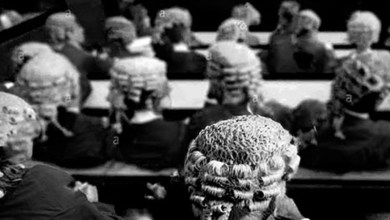Justice On Trial: The Incarceration Of Dele Farotimi Sparks Outrage

Dele Farotimi, a prominent activist lawyer and human rights advocate, has been denied bail and remanded in custody by a Chief Magistrate’s Court in Ado-Ekiti. His detention has drawn widespread condemnation, highlighting systemic flaws in Nigeria’s justice system and sparking a broader debate on institutional oppression.
Farotimi faces charges of alleged cybercrime, including defamation of Chief Afe Babalola (SAN), founder of Afe Babalola University. The police, led by Inspector-General Kayode Egbetokun, filed the suit, while the presiding magistrate, Abayomi Adeosun, adjourned the bail ruling to December 20. The police counsel, Samson Osobu, argued that Farotimi’s bail application was incomplete and improperly filed.
Farotimi’s arrest has ignited public outcry. African Action Congress presidential candidate Omoyele Sowore denounced the detention as an abuse of power, calling for the activist’s immediate release. “The Nigerian police cannot continue to be used to settle personal scores,” Sowore asserted in a tweet.
Similarly, renowned lawyer Femi Falana (SAN) described Farotimi’s arrest as illegal and demanded his unconditional release. “This is an affront to the principles of democracy and the rule of law,” Falana stated.
Farotimi’s detention is emblematic of a justice system critics argue is weaponized to silence dissent and protect the powerful. Ebuka Ukoh, a social worker and researcher, described the situation as a stark reminder of the fragility of individual freedoms in Nigeria. “His incarceration is not just an attack on his person; it is an assault on the very fabric of our democracy,” Ukoh wrote in an op-ed.
The charges against Farotimi have also raised questions about the influence of power dynamics on judicial outcomes. Advocacy groups, civil society organisations, and international observers are now urging comprehensive reforms to ensure transparency, accountability, and judicial independence in Nigeria.
Farotimi’s case underscores the pressing need for systemic change. As calls for his release grow louder, Nigerians are left grappling with questions about the state of justice in the country and their collective responsibility in addressing such abuses.
“Injustice anywhere is a threat to justice everywhere,” Ukoh concluded. “Nigeria stands at a crossroads, and how we respond to this moment will define our future as a nation committed to equity, justice, and the rule of law.”







